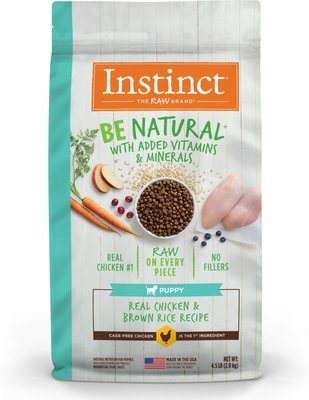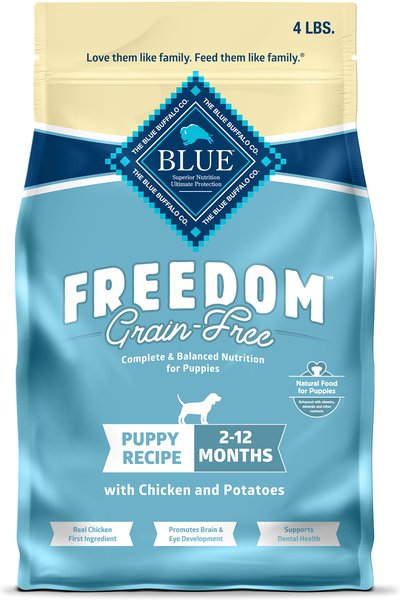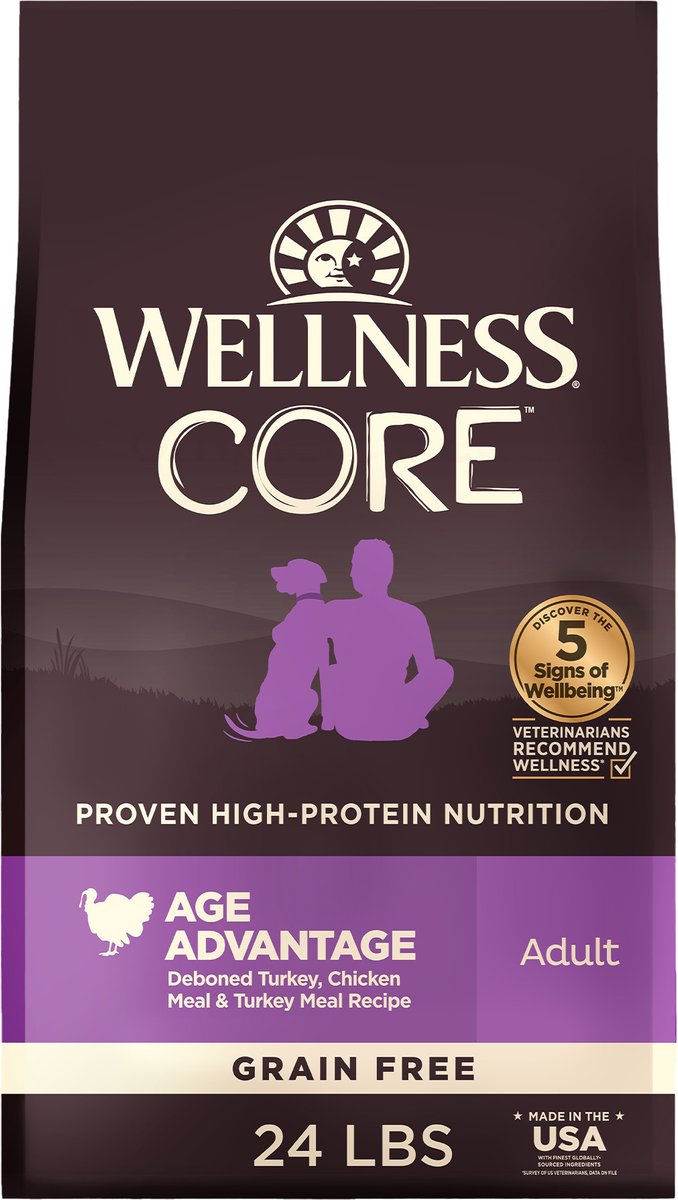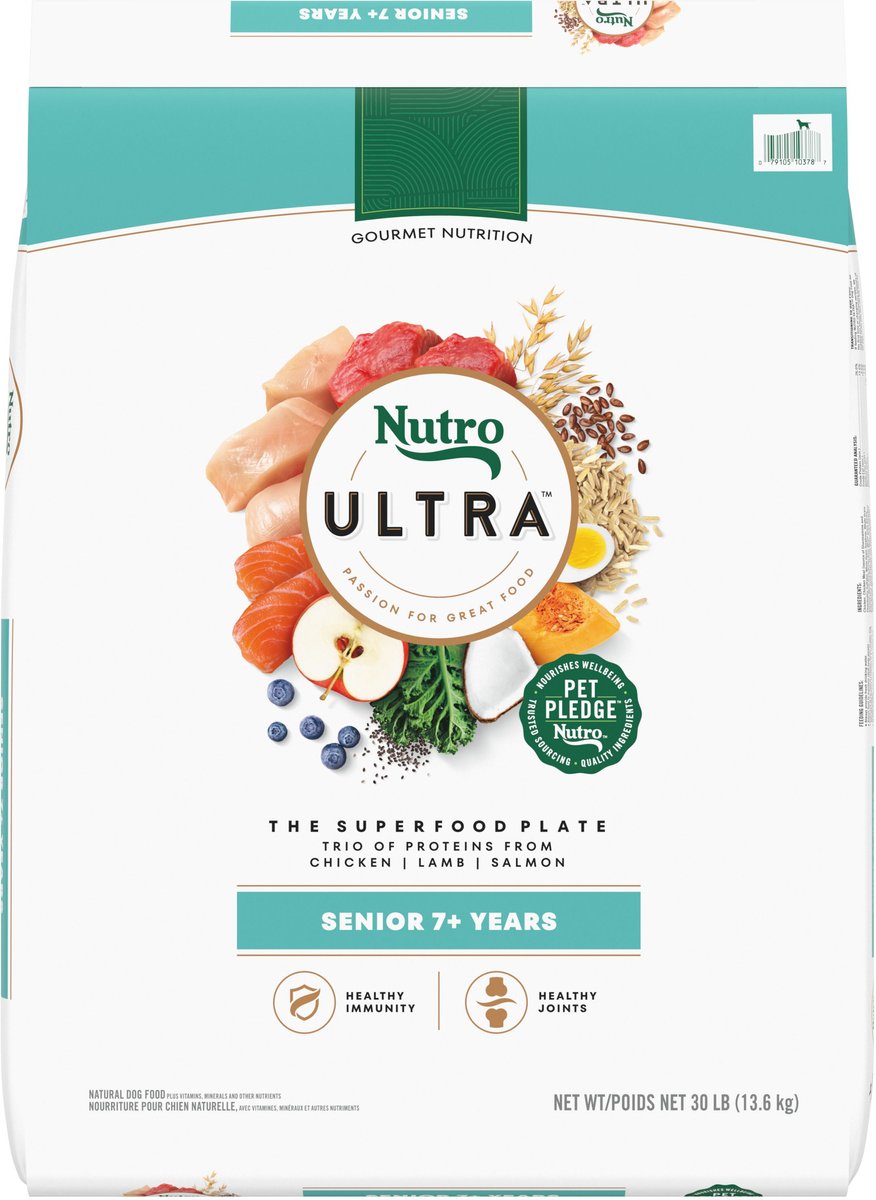What's the Best Dog Food for Poodles?

Poodles are easy to train, athletic, and loving family companions. Standard and Miniature breeds are hard workers while the tiny Toy breed is built for cuddles. They all need just the right amount of exercise and good nutrition to keep them fit and healthy. If you're looking for the ideal diet for your poodle, check out our recommendations below and the factors our nutrition team put into the best dog foods for poodles.
Jump to section
Breed Info
Breed Group:Non-Sporting | AKC Poodle Standard Profile
Ideal Weight:Female Adult: 46 to 59 pounds
Male Adult: 51 to 64 pounds
Exercise Need:30 to 50 minutes per day
Breed Summary
Poodles were originally bred in Germany for duck hunting and are athletic, highly trainable, and smart while being a loveable, playful member of the family. Standards are bred to retrieve, Miniatures to sniff out truffles, and Toys as a companion dog for snuggling and pampering. If you are tempted to spoil your Miniature and Toy poodles because they are small and endearing, watch out. These super smart dogs will have you wrapped around their paws in no time! Poodles are a low shedding dog that needs to be groomed every 4 to 6 weeks. Coats are curly and may be black, white, or apricot. Great with adults, children and other dogs. Standards and Miniatures require sufficient physical and mental exercise, and socialization.
Physical Traits
Athletic build, coats require quality and consistent grooming
Personality Traits
Athletic, intelligent, good companions, great family dog
Health Considerations
-
Poodles, though athletic and hard workers, can come with a wide range of eye, leg, and hip issues. It’s important to have your dog thoroughly examined and fully tested for any signs of hereditary disorders common to the breed. Hereditary issues may affect the health of your standard poodle including distichiasis, , epilepsy, cataract, and canine hip dysplasia (CHD). Your miniature poodle should be evaluated for entropion other hereditary issues including eye, knee, and hip disorders.
-
Allergies & Skin Problems
Your poodle may develop food allergies, particularly to grain additives in its food. This and other skin issues may be addressed with proper diet. We like to recommend diets that contain:
-
Eye Problems
Poodles may develop eye health issues like progressive retinal atrophy (pra) and glaucoma, so we like to recommend foods or supplements that contain:
Recommendations:
Anthocyanins・ Astaxanthin・ Beta-carotene・ Carotenoids・ Glutathione・ Lutein・ Lycopene・ Omega-3 essential fatty acids・ Phytonutrients・ Vitamin A・ Vitamin C -
Joint Issues
Poodles can be prone to joint issues such as canine hip dysplasia (chd) and arthritis. We like to recommend diets that contain:
Recommendations:
Antioxidants・ Chondroitin・ Glucosamine・ Green Mussel・ Methylsulfonymethane・ Omega-3 from Fish Oil・ Taurine・ Turmeric・ Vitamin E -
Weight Management
Poodles need plenty of exercise which is one of the best ways to keep your dog’s weight in check. However, the food your poodle eats is the best assist after exercise. We discourage feeding your dog table scraps for nutritional reasons but also to keep your dog from becoming food obsessed. To help your standard poodle prevent bloat, feed the dog on a regular schedule, smaller meals, three times per day. Plan exercise sessions to end at least an hour before or after feeding and do not feed from an elevated dish. The foods we like for weight management may contain:
Recommendations:
Large bites (to slow chewing)・ L-carnitine・ Low calorie・ Low fat
Get a tailored nutrition profile for your dog
Our free nutritional assessment tool provides individualized recommendations based on your dog's breed characteristics, age, weight, body condition score, and activity level. It only takes 30 seconds to receive science-based insights to support your dog's lifelong health.
Are Fresh Food Diets Good for Poodle Standards?
Only if they’re properly balanced.
Many well-intentioned Poodle Standards parents spend a lot of time preparing meals at home, but health benefits are lost if meals aren’t properly portioned and balanced with all the nutrients dogs need. Recently, a few companies have done an excellent job ensuring accurate portions and nutrient balance by delivering pre-prepped fresh meals customized to the size and needs of your dog. Farmer’s Dog, Ollie and Nom Nom have each been approved by our nutrition team as delivering truly quality and well-balanced meals. They can be a little expensive (usually 3-4x more per day than kibble), but many find the added health benefits worth the cost. They do offer discounts to new customers, though, if you’d like to try one out.
Pros and Cons of Fresh Food Diets
✓ Diets balanced by Nutritionists・ ✓ Customized portions for weight control・ ✓ Superior digestive and immune health ・✕ More expensive than standard dog food
Foods We Recommend for Poodle Standards Puppies
How long do Poodle Standardss need puppy food?
Until they're 7 to 10 months old.
Poodle Standards are very focused on growing, and how we feed them should help them do just that. Since they have so much growing to do, they need higher amounts of nutrients than adult dogs, especially proteins, fats, carbohydrates, vitamins, minerals and — don’t forget — water. It’s still important to not overfeed puppies, so make sure to portion food and keep treats to no more than 10% of their caloric intake. Since balance is so important, we recommend that your young Poodle Standards is eating food that is made just for puppies from a reputable brand.
Find the best nutritional start for your puppy
Our recommendation tool evaluates your puppy’s breed, age, growth stage, lifestyle, and health needs to identify a scientifically appropriate diet from over 10,000 options. Obtain personalized guidance to help support healthy development and lifelong wellness.
Foods We Recommend for Poodle Standards Adults
When should Poodle Standards start transitioning to adult food?
When they're 7 to 10 months old
From a nutrition standpoint, Poodle Standards become adults once they reach about 90% of their expected weight. Once adults, our two key nutrition goals are balance and maintenance. We want balance because a dog’s body is responsible for a lot of things, like digestion, fighting infection, keeping muscles strong, and chasing squirrels. These are all important tasks, so we want to make sure each body function gets its share of nutrients. We also need to maintain a healthy weight. Underfed dogs are at risk for malnourishment, and overfed dogs can become obese — both of which lead to even worse problems for a Poodle Standard
Find the optimal nutrition plan for your adult dog
Our assessment analyzes your dog’s breed, age, lifestyle, and health considerations to recommend a scientifically selected diet from over 10,000 options. Personalized insights to help your dog thrive through adulthood.
Foods We Recommend for Poodle Standards Seniors
When should Poodle Standards start transitioning to senior food?
All dogs can age differently, but medium dogs like Poodle Standards can start to benefit from senior food around 10 to 12 years old
Ever watch kids running around the playground and wish you had that energy again? Yeah. Dogs get there, too. The metabolic processes in senior Poodle Standards slow down as they age, which often means they aren’t needing quite as many calories as they did in their prime. Smart dog food companies have formulated senior diets to ease up on calories but still help them feel full and give them adequate maintenance protein. Still, like humans, everybody is different. Sometimes older dogs need just as many calories, or more, depending on how their bodies progress. So keep a close eye on their body condition, and look for dog foods made for seniors.
Support your senior dog's health with targeted nutrition
Our assessment analyzes your dog’s breed, age, and health considerations to recommend a science-based diet from over 10,000 options. Help maintain mobility, cognitive health, and quality of life.
Affiliate Disclosure:
We do not accept money to recommend pet foods. However, we do receive referral fees from online retailers (such as Chewy or Amazon) on qualifying purchases. Our recommendations are neutral, and diet recommendations are made without considering whether we will receive a referral fee.















